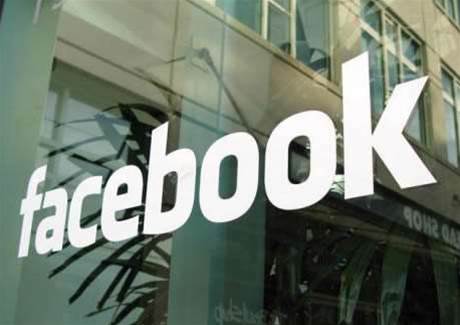Facebook filed on Wednesday to raise a targeted $5 billion, setting the stage for Silicon Valley's biggest-ever initial public offering.

The world's largest social network, a dorm room project for Harvard dropout Mark Zuckerberg that exploded in popularity and vaulted to Silicon Valley's top tier within eight years, revealed an annual revenue of $3.71 billion and operational income of $1.76 billion for the first time.
The 2011 figures, revealed in the company's preliminary filing to the US Securities Exchange Commission, show a 65 percent increase in revenue and 70 percent increase in operational income over the previous financial year.
Facebook's long-awaited submission kicks off a months-long process that will culminate in Silicon Valley's biggest coming-out party since the heyday of the dotcom boom and bust.
The company, which said it now has 845 million active users, appointed Morgan Stanley, Goldman Sachs and JPMorgan its lead underwriters. Other bookrunners included Bank of America Merrill Lynch, Barclays Capital and Allen & Co.
Zuckerberg, who currently controls 28.4 percent of shares and 57.1 percent voting power in the company after proxy votes, characterised Facebook as embarking on "a social mission".
"We often talk about inventions like the printing press and the television," he said in a letter accompanying the documents.
"Today, our society has reached another tipping point.
"There is a huge need and a huge opportunity to get everyone in the world connected, to give everyone a voice and to help transform society for the future. The scale of the technology and infrastructure that must be built is unprecedented."
Neither Zuckerberg or the company detailed how it planned to expand following the IPO but stressed Facebook "was not originally founded to be a company".
Zuckerberg's $500,000 base salary will drop to a dollar from January 1, 2013 and will sell down some of his shareholding in the company as a result of the IPO.
Facebook had previously been expected to raise $10 billion in what would have been the fourth-largest IPO in US history, after Visa, General Motors, and AT&T Wireless, according to Thomson Reuters data.
As expected, the prospectus underscored how the lion's share of Facebook's revenue, 85 percent, was derived from advertising in 2011.
Last year, social-gaming company Zynga, the creator of Farmville, accounted for 12 percent of Facebook's revenue.
Political prowess building
Preparing to join the ranks of publicly traded companies, Facebook is also beefing up its presence in the US capital with a first report of money pouring into its newly created political fundraising arm.
A latecomer to Washington, the social networking site is joining scores of powerful technology companies such as Microsoft Corp and Google Inc that have political action committees (PACs) used to raise funds for donations to political campaigns or causes.
The Facebook PAC, officially registered in December, last year raised just above $170,000, predominantly from Facebook's own executives and employees, according to its filing with the Federal Election Commission (FEC).
Zuckerberg gave $5000, a move echoed by investors Marc Andreessen, James Breyer, and Peter Thiel. Thiel last year also contributed to a so-called Super PAC Endorse Liberty that supports Ron Paul.
Facebook PAC also received $5000 from Erskine Bowles, another member of the board of directors who was former President Bill Clinton's chief of staff and helped lead a deficit-reduction panel last year.
The only spending the PAC did last year was on credit card and other processing fees, filings showed.
US regulators are cracking down on web giants they view as compromising user privacy to attract advertisers, and Facebook found itself in their crosshairs last year.
The company settled with the Federal Trade Commission, agreeing to be regulated for a period of 20 years whenever it decides to change its privacy policy.
In addition to privacy issues, Facebook has also thrown its hat into debates over patent reform, online piracy and cybersecurity, among other topics.
Facebook significantly ramped up its Washington presence, adding experienced political staffers to its public policy team, including Joel Kaplan, former deputy chief of staff to former President George W. Bush.
Kaplan, treasurer of the PAC, gave $5000 to the committee.
With a new powerhouse team in place, Facebook's lobbying expenditures skyrocketed in 2011 to $1.35 million from under $400,000 in 2010, according to data from the Center for Responsive Politics.
Still, the company's lobbying pales in comparison to larger tech firms with Google spending $9.68 million and Microsoft spending $7.34 million on federal lobbying in 2011.
A Facebook spokesman was not immediately available for comment.
(Reporting by Alistair Barr, Poornima Gupta, Gerry Shih, Alina Selyukh and Jasmin Melvin; Editing by Richard Chang)



_(36).jpg&h=140&w=231&c=1&s=0)
_(20).jpg&h=140&w=231&c=1&s=0)
_(33).jpg&h=140&w=231&c=1&s=0)





 iTnews Executive Retreat - Security Leaders Edition
iTnews Executive Retreat - Security Leaders Edition
 iTnews Cloud Covered Breakfast Summit
iTnews Cloud Covered Breakfast Summit
 The 2026 iAwards
The 2026 iAwards












_(1).jpg&h=140&w=231&c=1&s=0)



